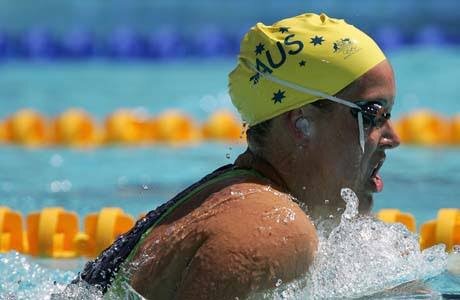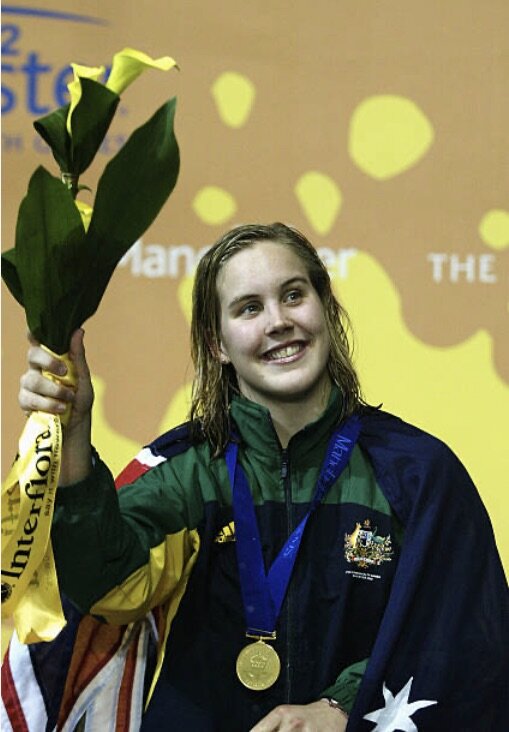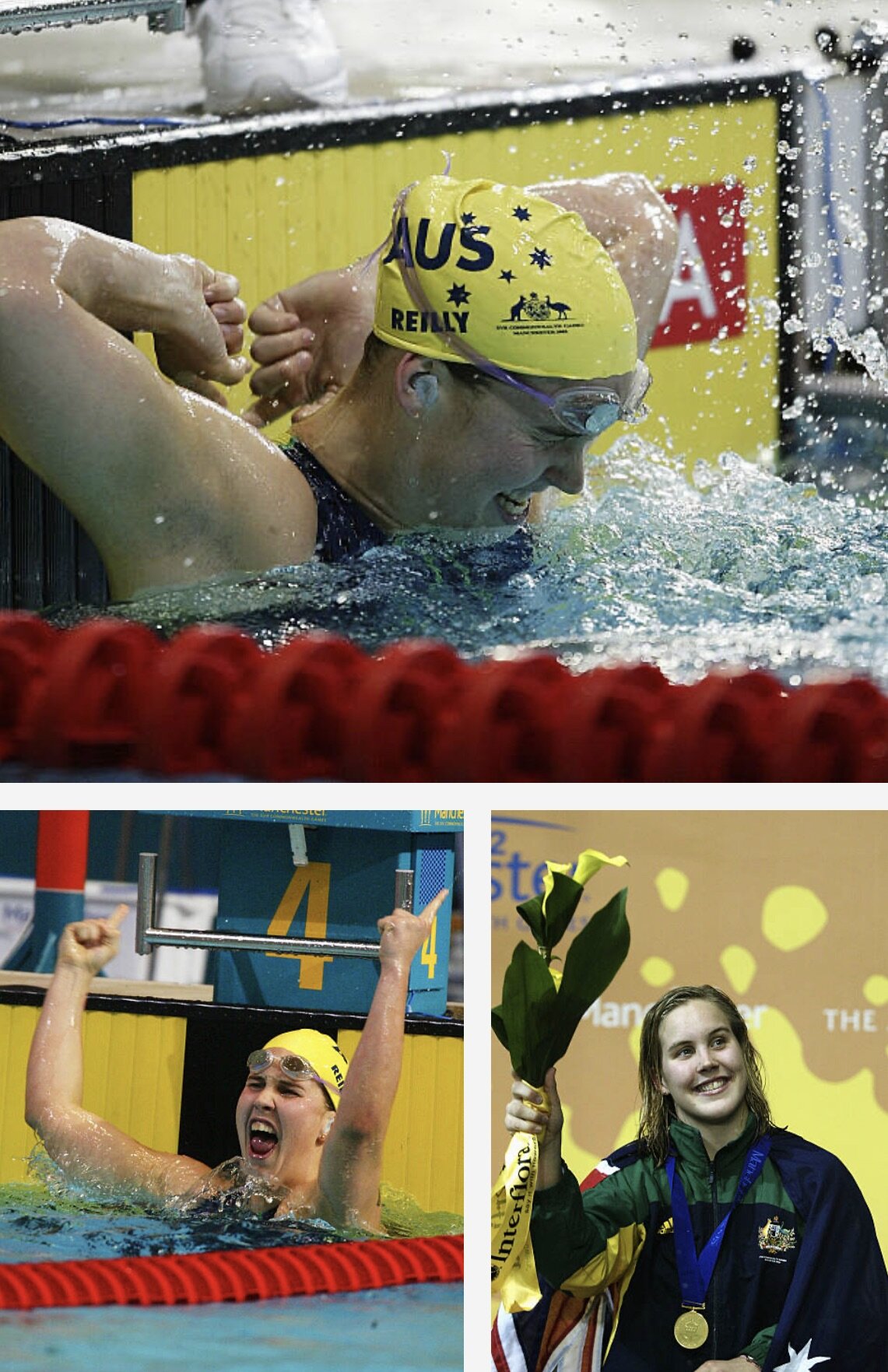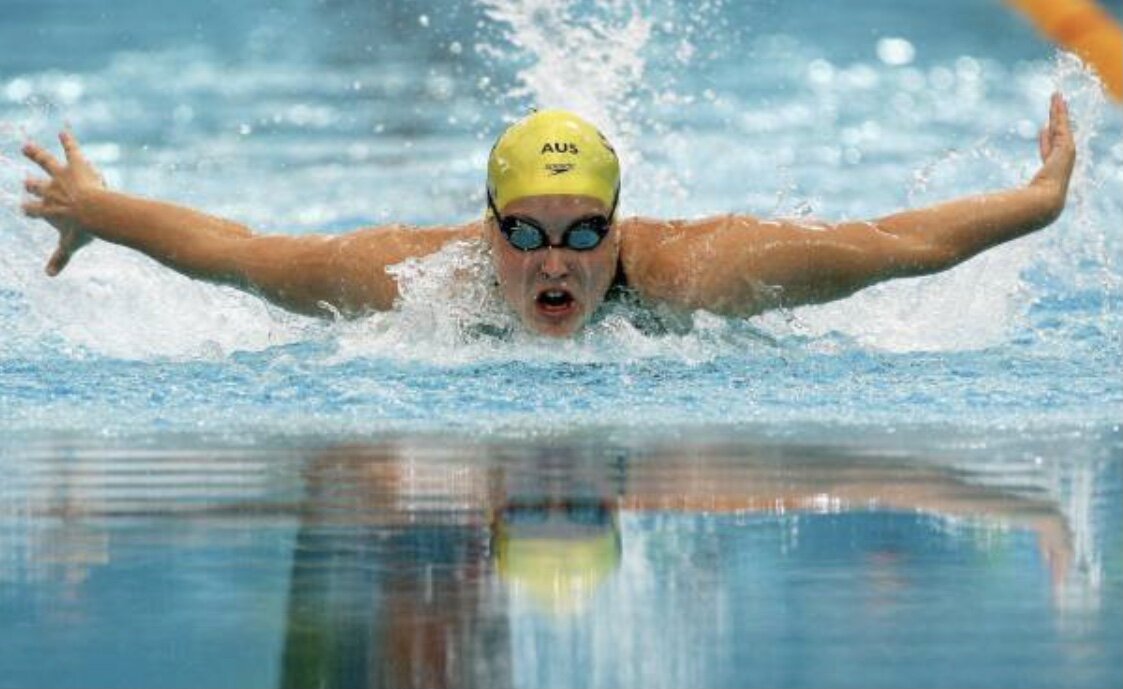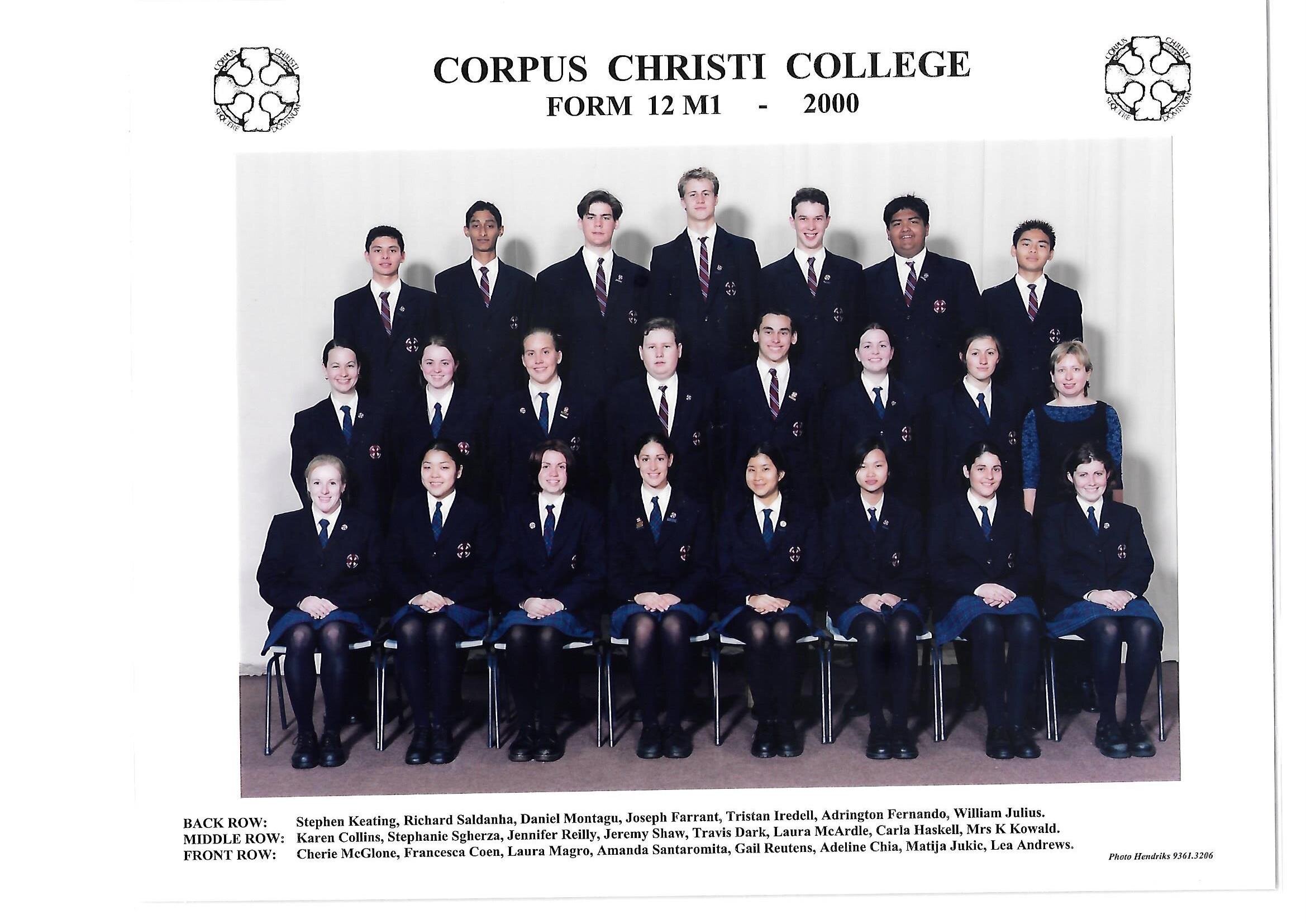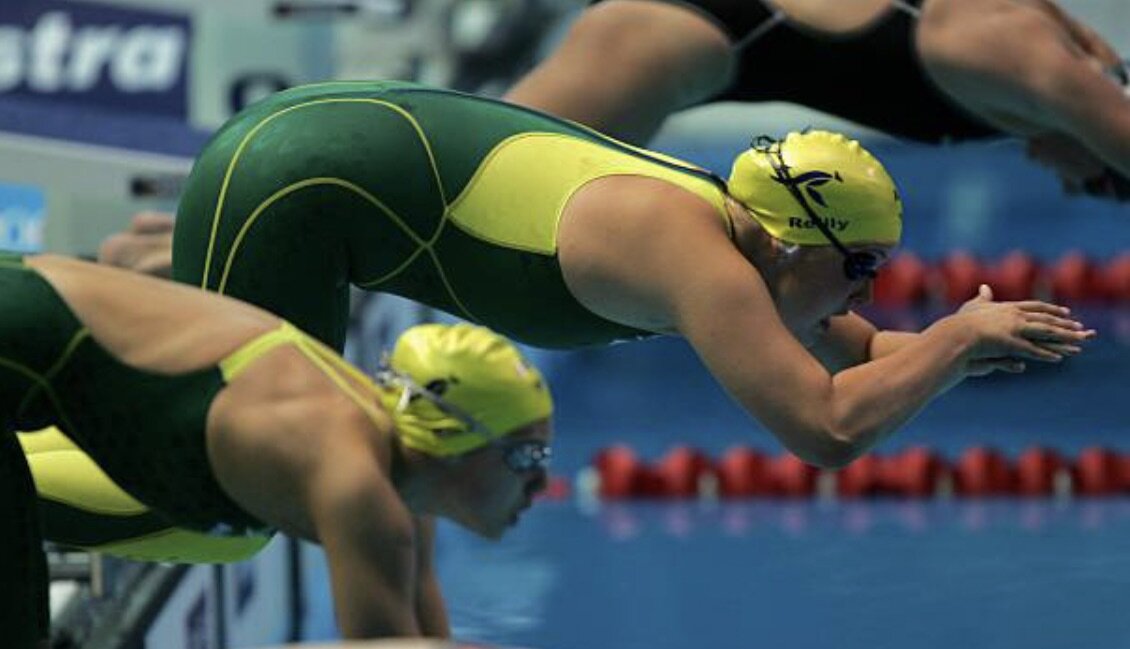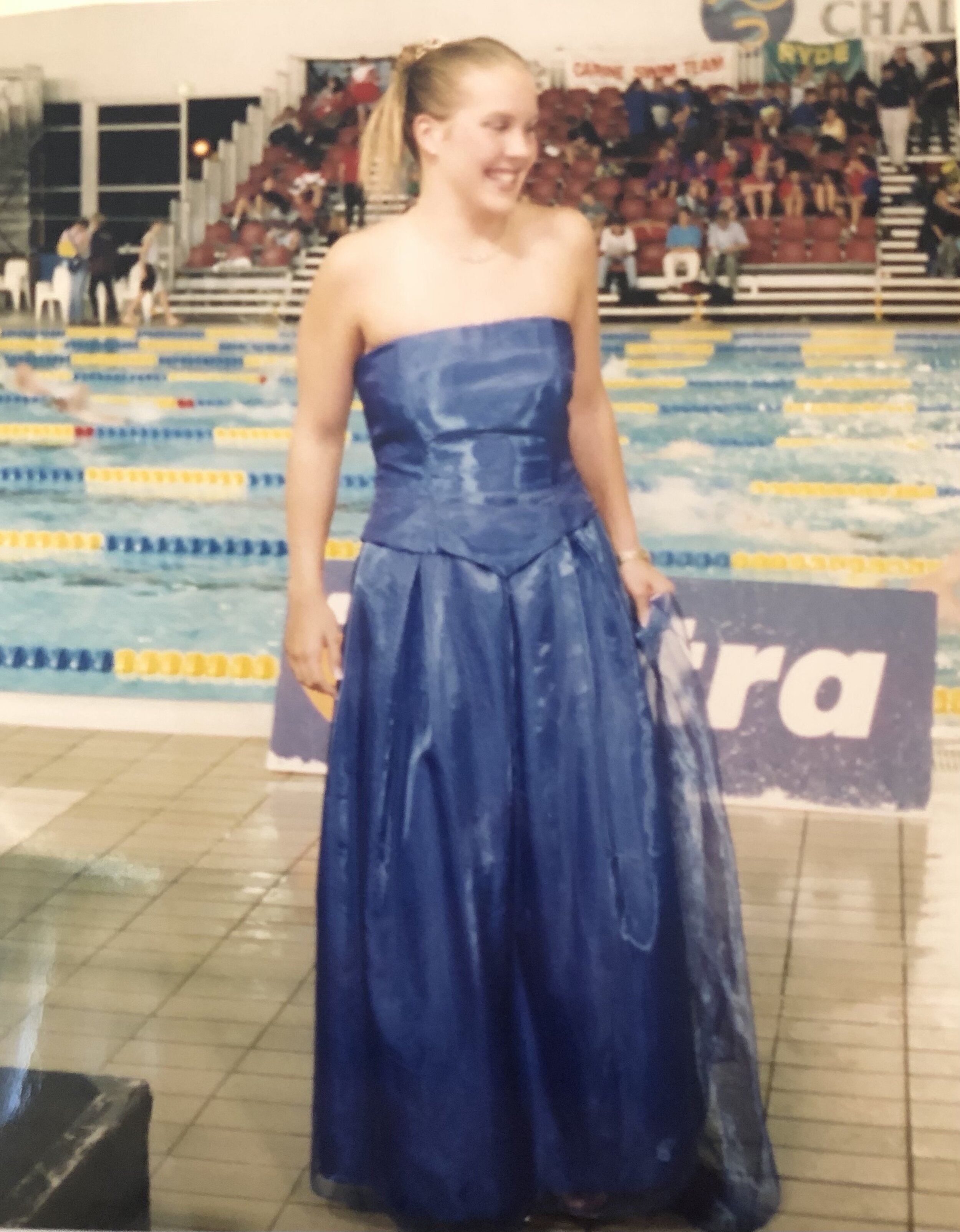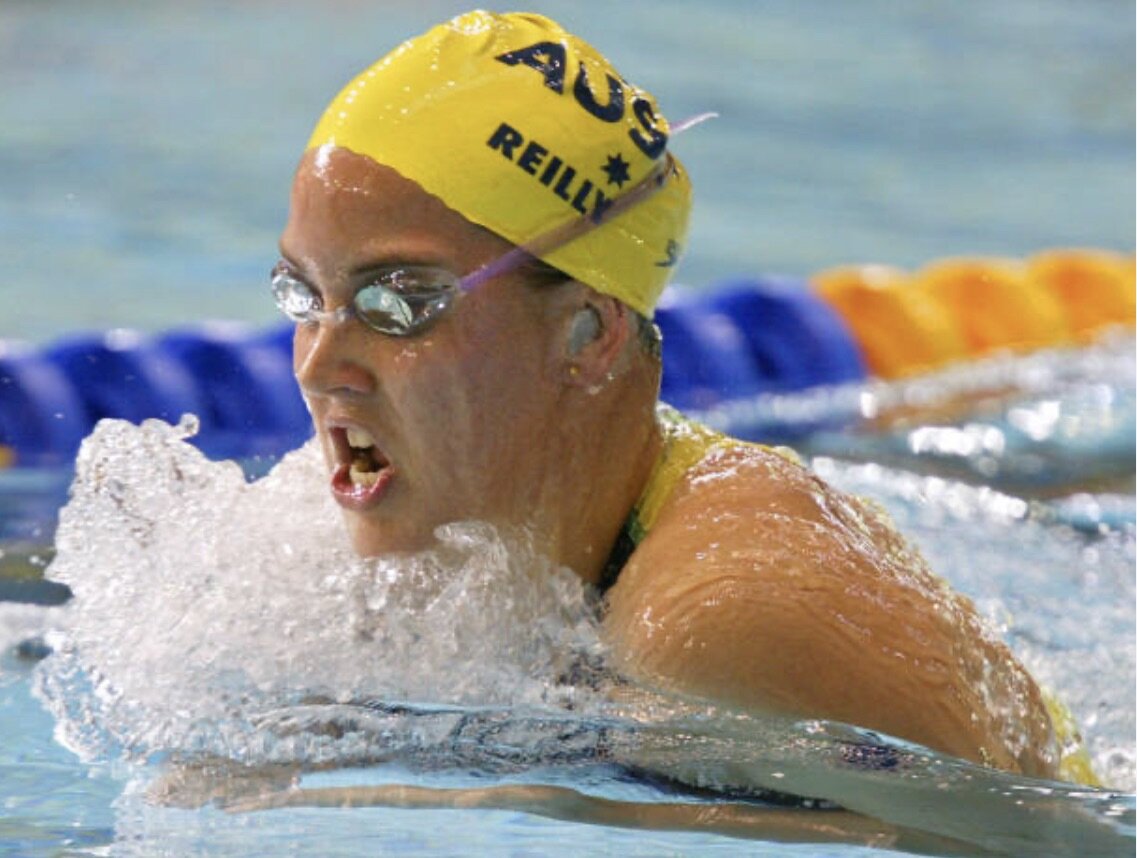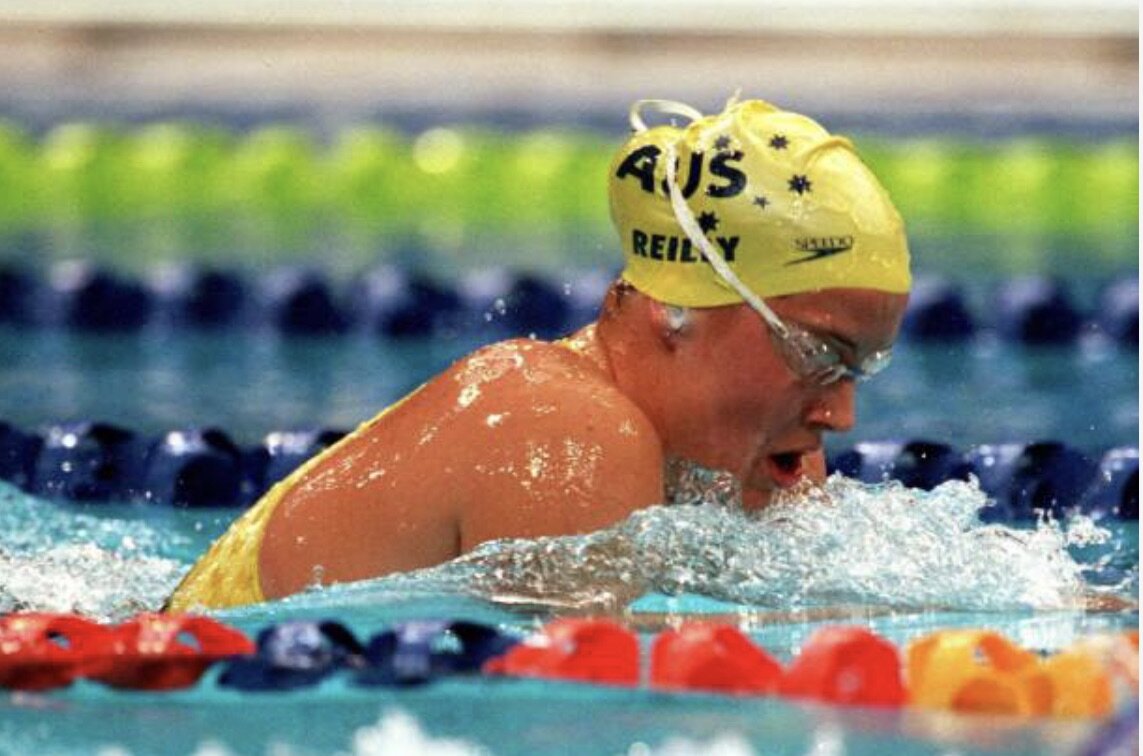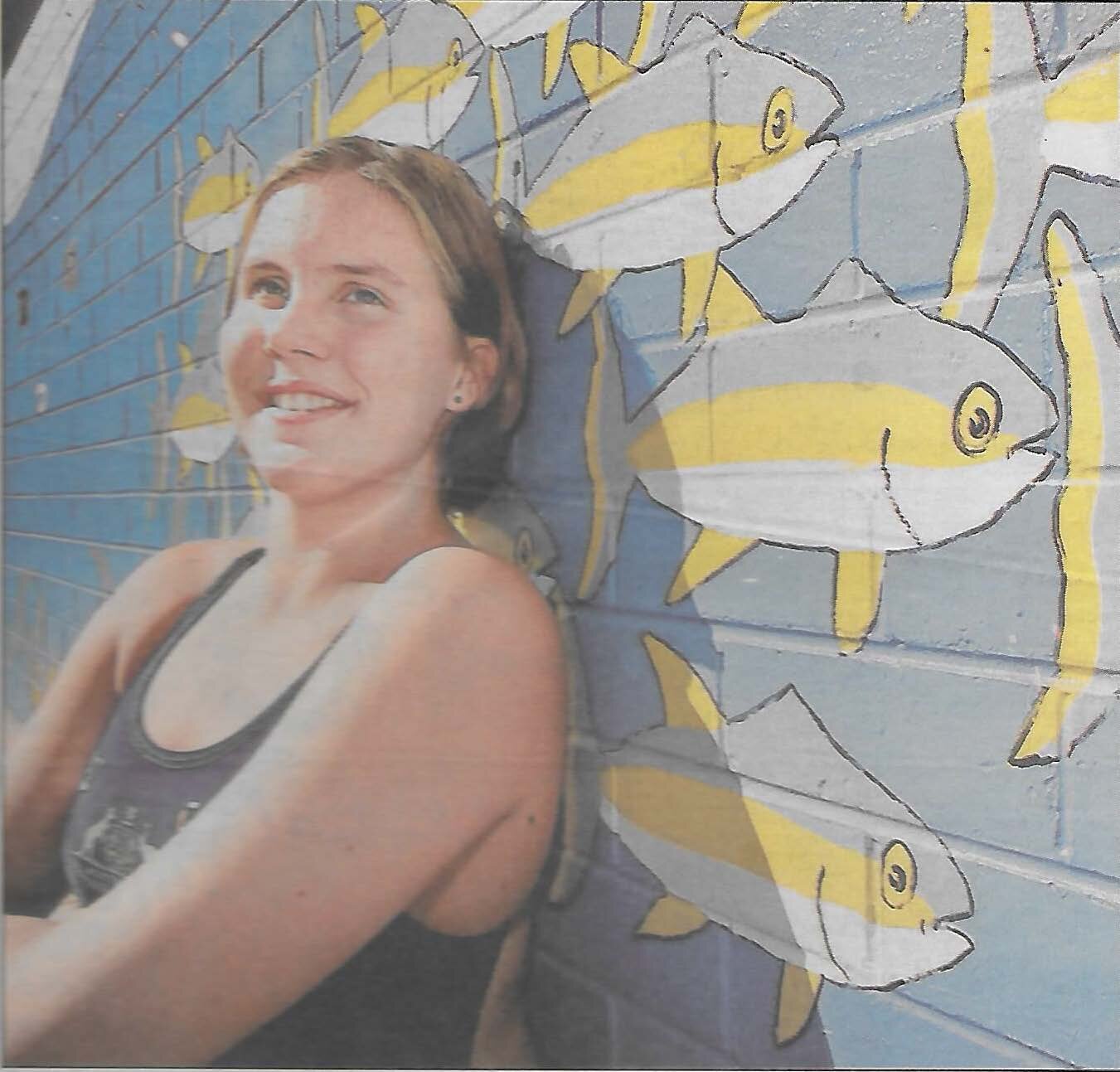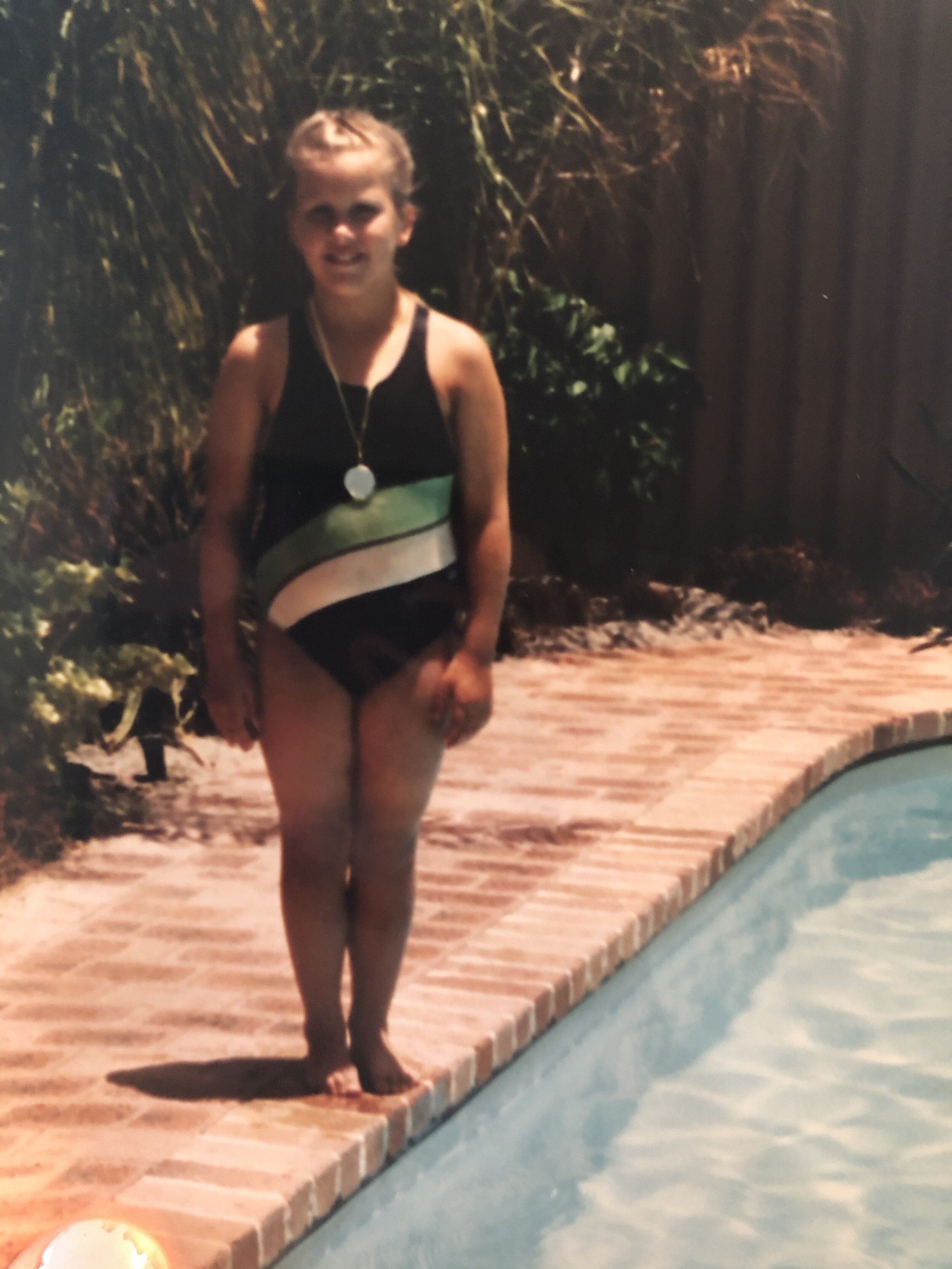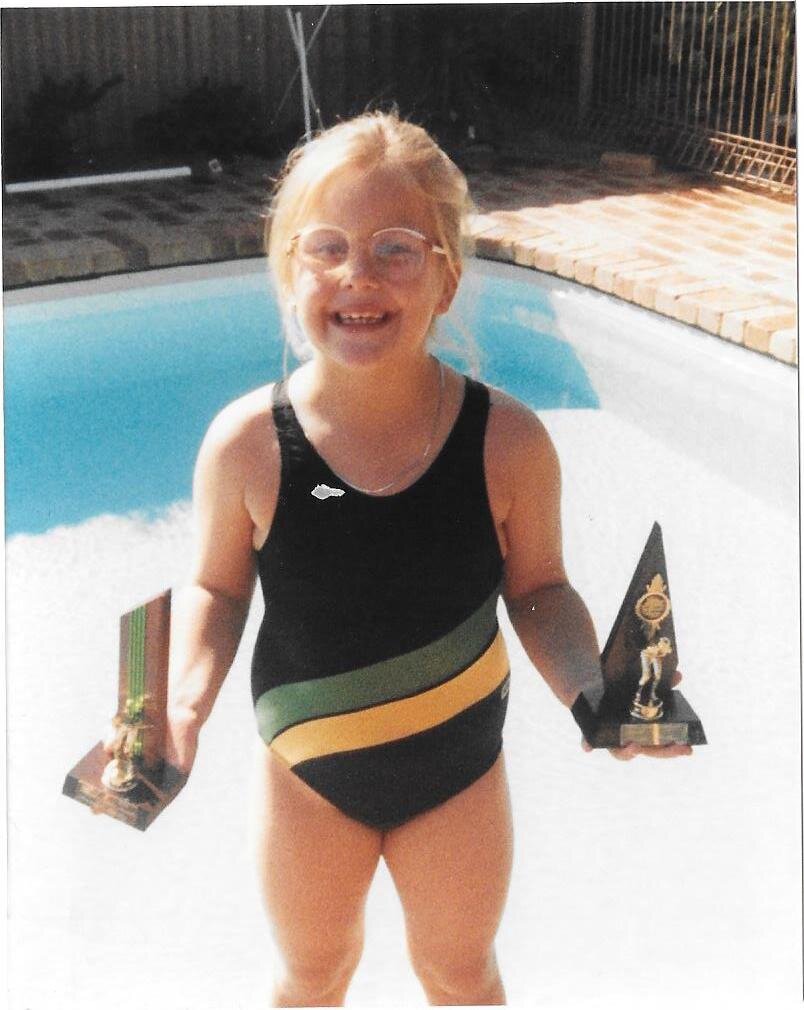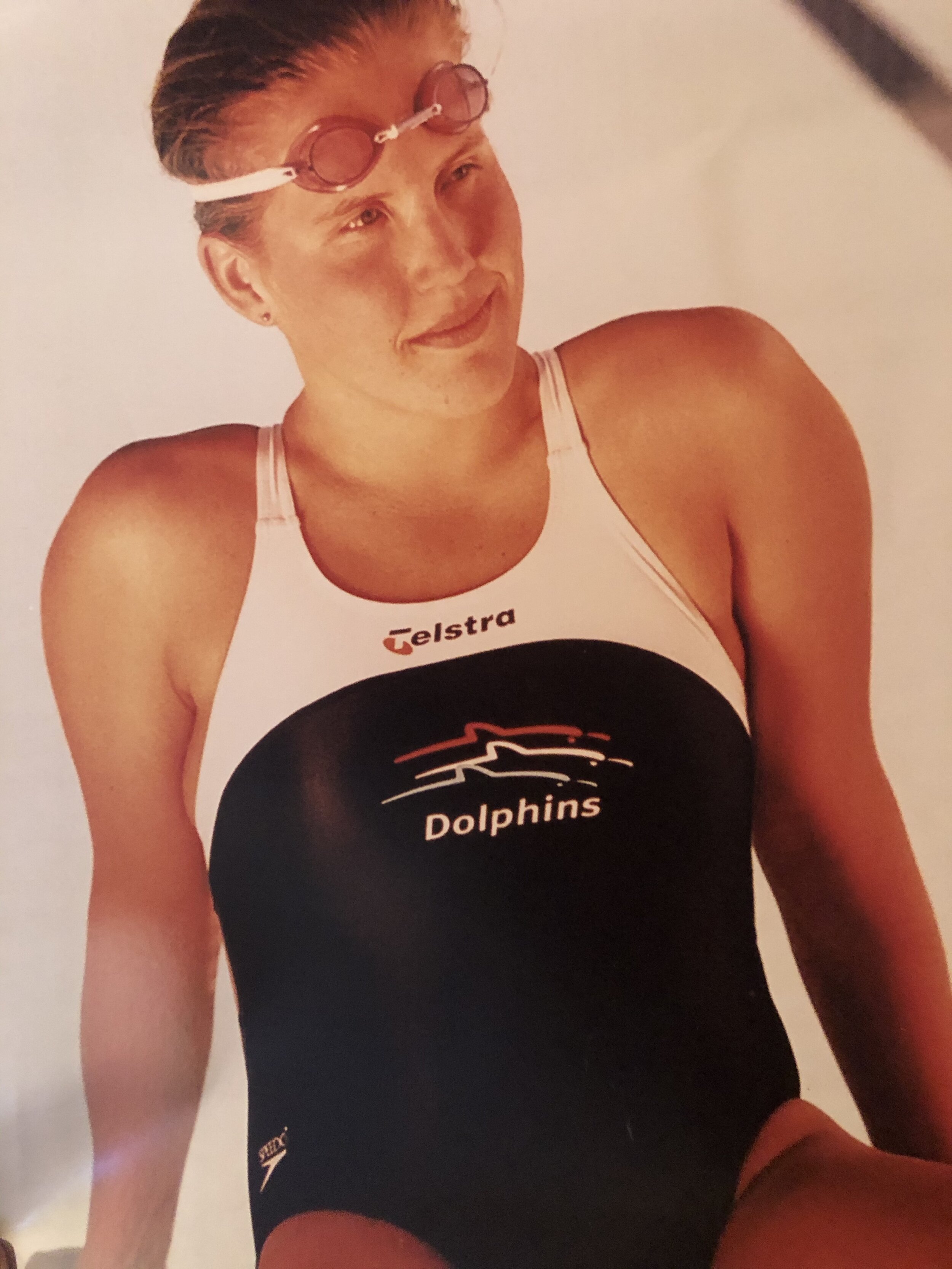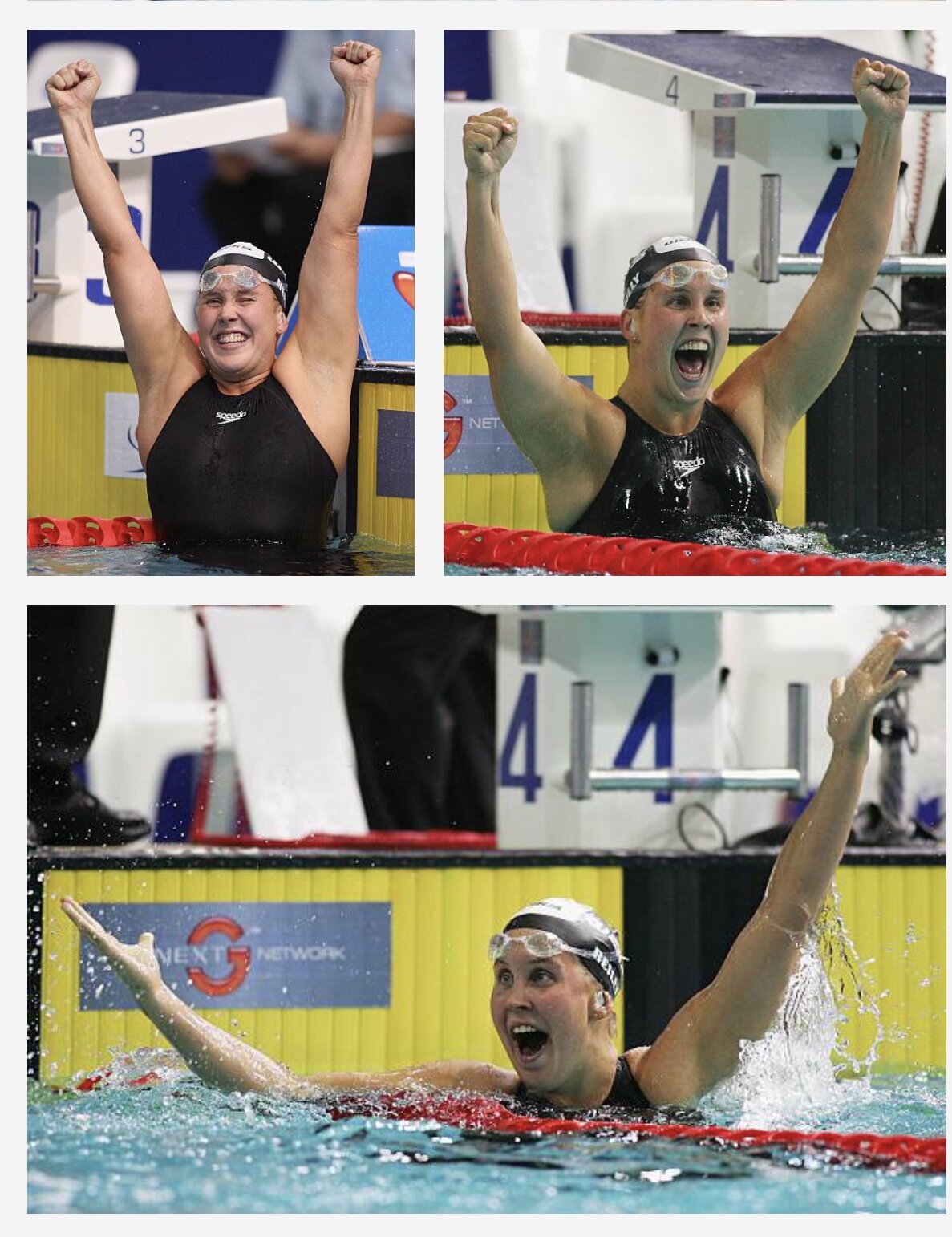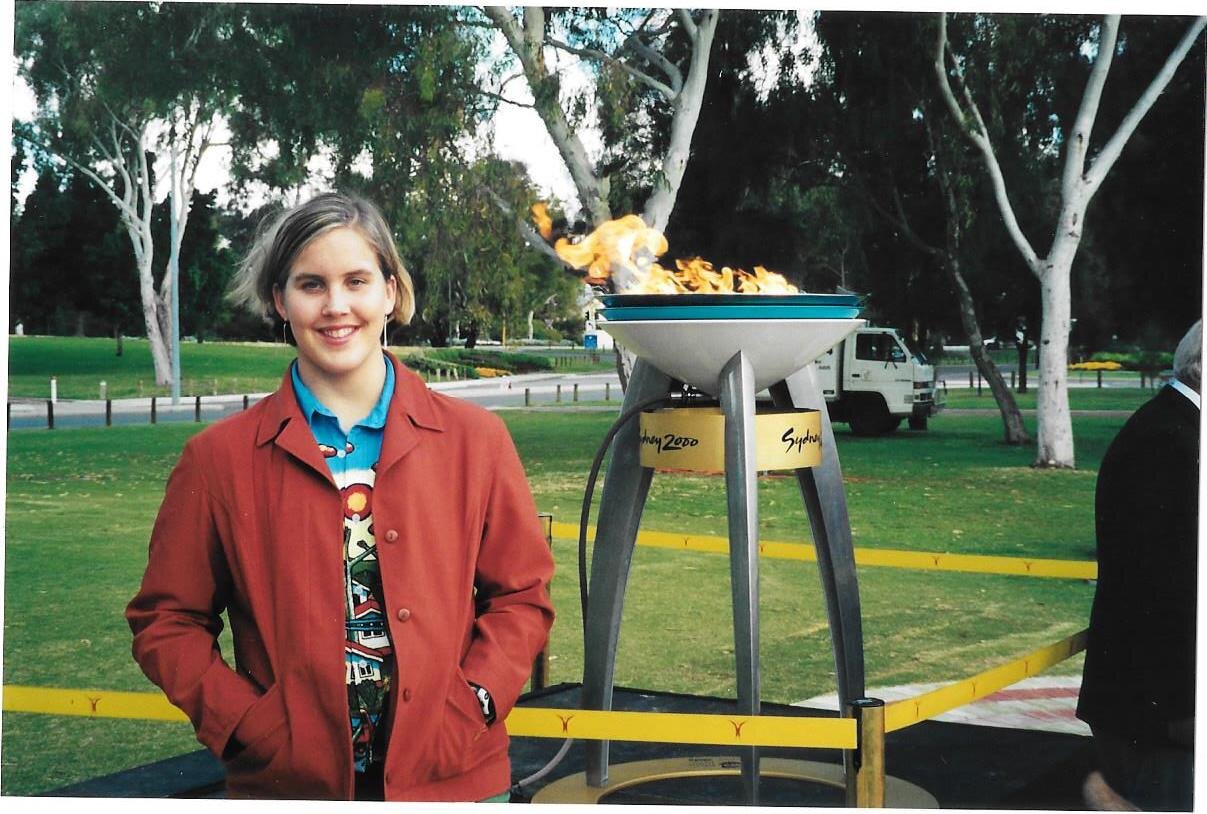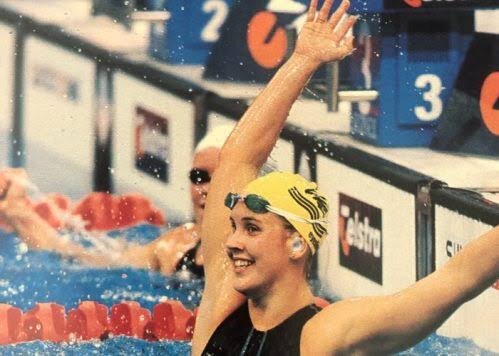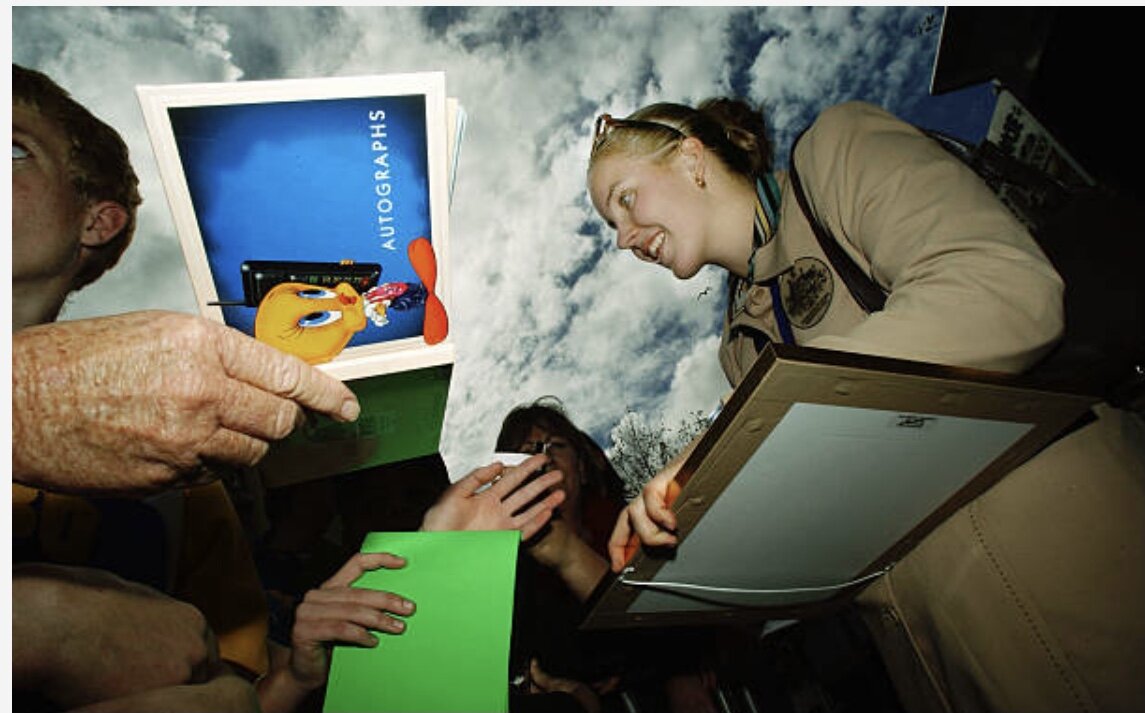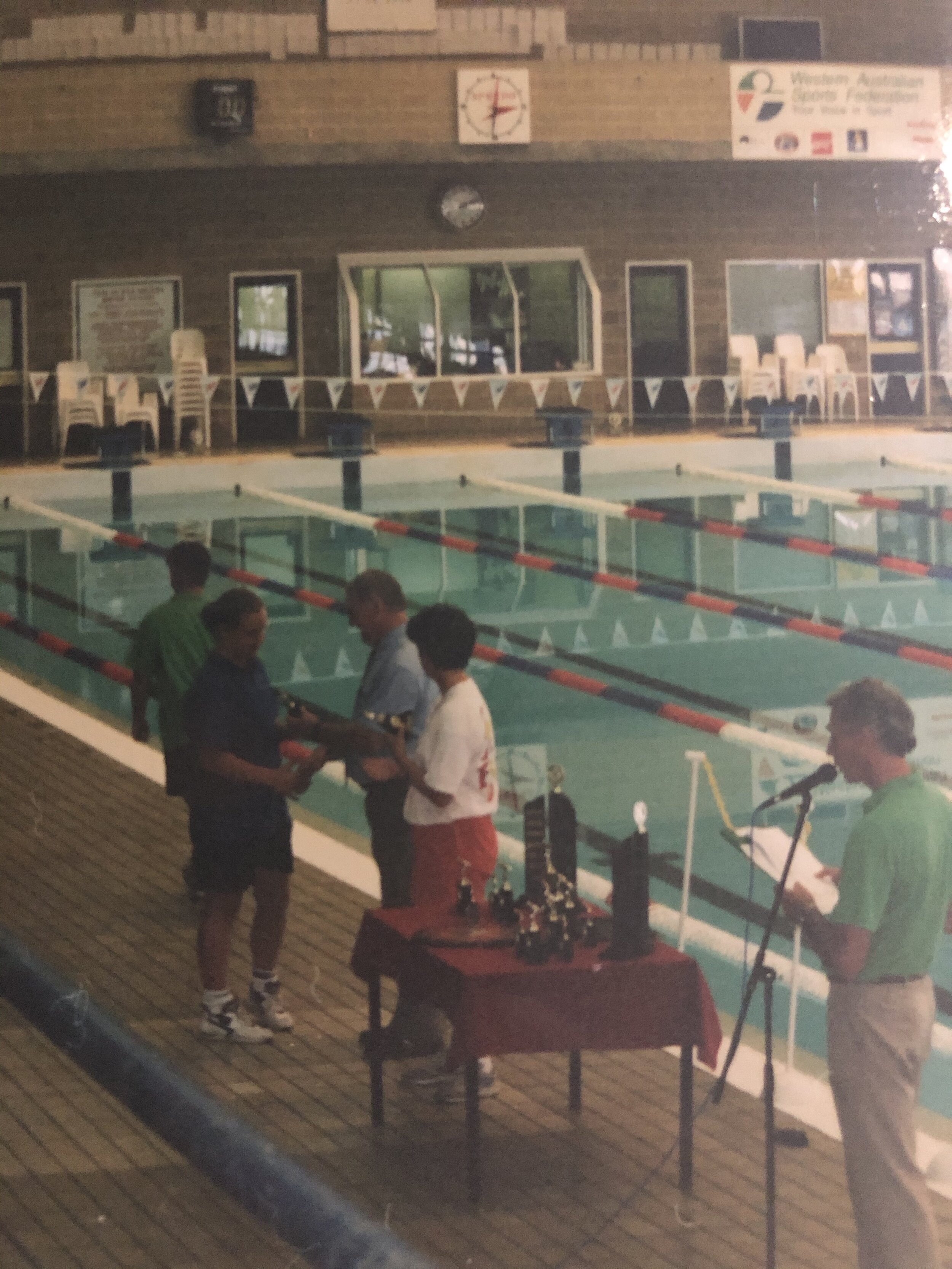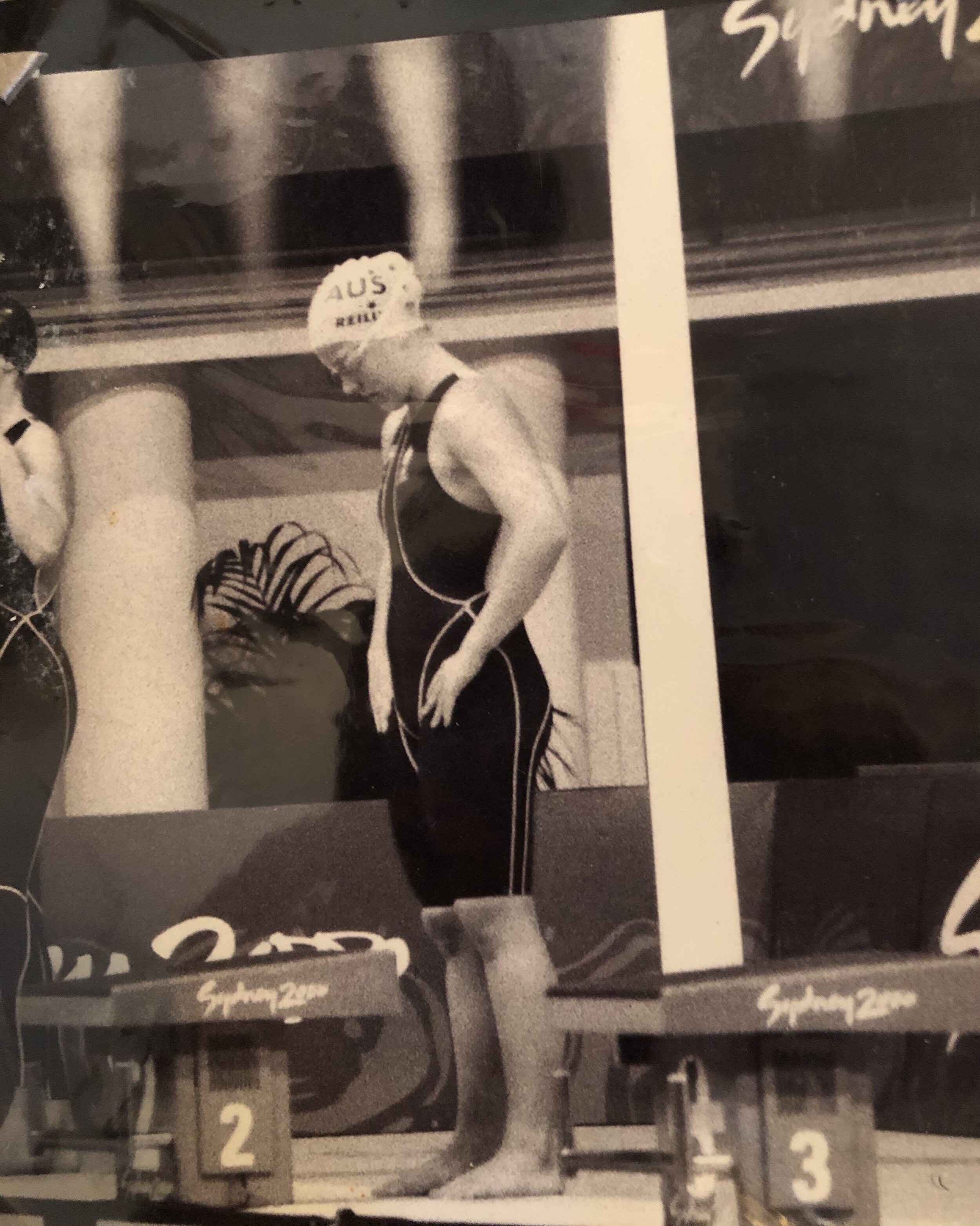Jennifer Reilly
Olympian Jennifer Reilly (Class of 2000) is one of ̨žłUUApp’s most notable alumni, best known for her signature event: the 400 Individual Medley. Born in Geraldton and growing up in Perth, she showed incredible promise as a young competitor and went on to enjoy an illustrious swimming career that included Australian records and numerous medals at international championships. In addition to the 400IM, Reilly was also a fierce competitor in the 200IM and 800m freestyle.
We spoke to Jennifer ahead of the opening of the College’s new Aquatic Centre, which was officially unveiled as the Jennifer Reilly Aquatic Centre on March 12, 2021. Her journey is an inspiration to all Australians and is a shining example of a Corpus community member Igniting the Spirit.
When did you first start training for competition?
I started swimming and competing in local club races at age six. Moving to Port Hedland in Year 5, the pool was only open six months of the year, so I kept swimming and competing, it was very social and fun. I moved back to Perth mid-Year 8 and returned to swim training to improve my fitness to play water polo (training most afternoons after school) and still competed in local and state competitions. Having some swimming success, I increased my training, adding some morning sessions (training eight to nine times a week) – this was when I started to seriously train for competition.
How did you balance school and training?
I had to be very organised – I tried where possible not to leave assignments to the last minute. Most of the time I made use of class time to minimise any unfinished work that would otherwise become homework. I would study/read in the car on the way to and from school and training.
I tried to talk regularly with my teachers about training commitments and any travel/absence due to competitions or if I needed any extensions. I always found my teachers were more supportive when I spoke to them before something was due, rather than waiting till the due date.
In my later years of high school, I would make study notes that were usually quite visual, and I would revise them when swimming. I can still remember studying human biology facts during morning training, trying to relate the content to my own body while swimming. I also had a very supportive school which worked with me when selecting subjects, managing travel and school absence, and allowed me to drop Phys Ed in favour of an extra couple of study sessions, as I was getting plenty of Phys Ed outside of school hours.
And when it didn’t all go to plan, I would set the alarm even earlier and cram some study for a test before training – I felt my brain always absorbed more in the morning!
What was it like competing in the 1998 Commonwealth Games in Kuala Lumpur as a 15-year-old and winning bronze in the 400 Individual Medley?
I had no idea what to expect. I wasn’t expected to make the team and my coach didn’t get selected as a team coach, so I felt a little alone. I had just turned 15 and didn’t know anyone on the team – they were all a few years older than I was and it was very surreal to be having breakfast with famous swimmers like Susie O’Neill and Kieran Perkins, who I had posters of in my bedroom only a couple of months prior.
But this lack of experience probably worked in my favour when it came to racing. I had nothing to lose, so just went out and gave it my best shot. I was so thrilled to medal – it was one of the best feelings. Even though it was a bronze, it felt like gold to me.
My whole family came to watch, and it was wonderful to have them in the stands cheering and supporting me.
What is your favourite Inter-house or Inter-school swimming carnival memory?
Inter-house when I was in Year 12 – the same year I made the Olympic team for Sydney 2000. While many of the other girls weren’t too keen on racing me, they all stepped up and gave it a go. We had some wonderful races and plenty of laughs. The best events were always the relays, racing with my friends and of course the cheering – Go Murdoch!
What were the highlights of your Olympic experiences in 2000 and 2004 (including making the 400IM final in Sydney)?
It was something I had trained and set goals for, but when it actually happened it was very surreal. While lots of people can share their experience of an Olympics with you, it doesn’t really fully prepare you for the Olympic village life and the feeling of actually being a part of and competing at the Olympics.
I was the first event and first Australian to compete in the swimming. I can still remember the roar of the crowd as they introduced me. The home crowd was amazing! As I looked into the grandstand to try and spot my parents, I couldn’t actually tell where the crowd ended – it seemed to go on forever. The cheer was so loud and really lifted me before my race.
Racing in an Olympic final is certainly the main highlight my Olympic experience. However, being able to meet and mingle with other famous athletes from many different countries and sports in the Olympic village was fantastic, as well as being able to watch other sports once the swimming was finished, like being in the crowds to watch Cathy Freeman win gold.
Your career includes successes at World Championships, Commonwealth Games, Pan Pacs, World Cup events, National Championships, and more. What did you learn and what kept you motivated in these years?
I learnt that it’s not easy. But it is so worth it. There are a lot of sacrifices over the years to achieve those successes, but they are the memories that stay with me today, not the things I may have missed or sacrificed along the way. Your mindset and self-belief play a big role in your preparation – it’s not just about the physical training. You have to focus on your own lane – when you start worrying or thinking about the other people in the race, you detract from your own preparation.
Initially, success kept me motivated as I was young when I made my first international team, so the first few years of competition meant that I kept improving, either winning or improving my personal best times. It was easy to continue to train and stay motivated.
When your times start to plateau, and the improvements don’t come as easily or as frequently, I found having a good support network was the key to staying motivated – having a coach that you can talk to about setting goals and how to move forward, as well as being open to making changes to routines and training programs. I think the most motivating part was the people I trained with; we all had similar goals and supported each other, and because they made training fun and enjoyable, it was easier to get up for those early mornings and give 100% at every session. They became some of my best friends.
Career highlight?
Pan Pacs gold medal because I broke the Australian record for the 400IM. And medalling at three consecutive Commonwealth Games in the same event.
What advice would you give to young swimmers aspiring to compete at a national and international level?
Work hard and listen to your coaches and parents. They have your best interest at heart and only want to see you succeed, so if they make a suggestion or give you some advice, it’s just because they want to help.
Have fun – I always swam my best when I was enjoying myself – it helped me to relax and not worry too much about the outcome.



